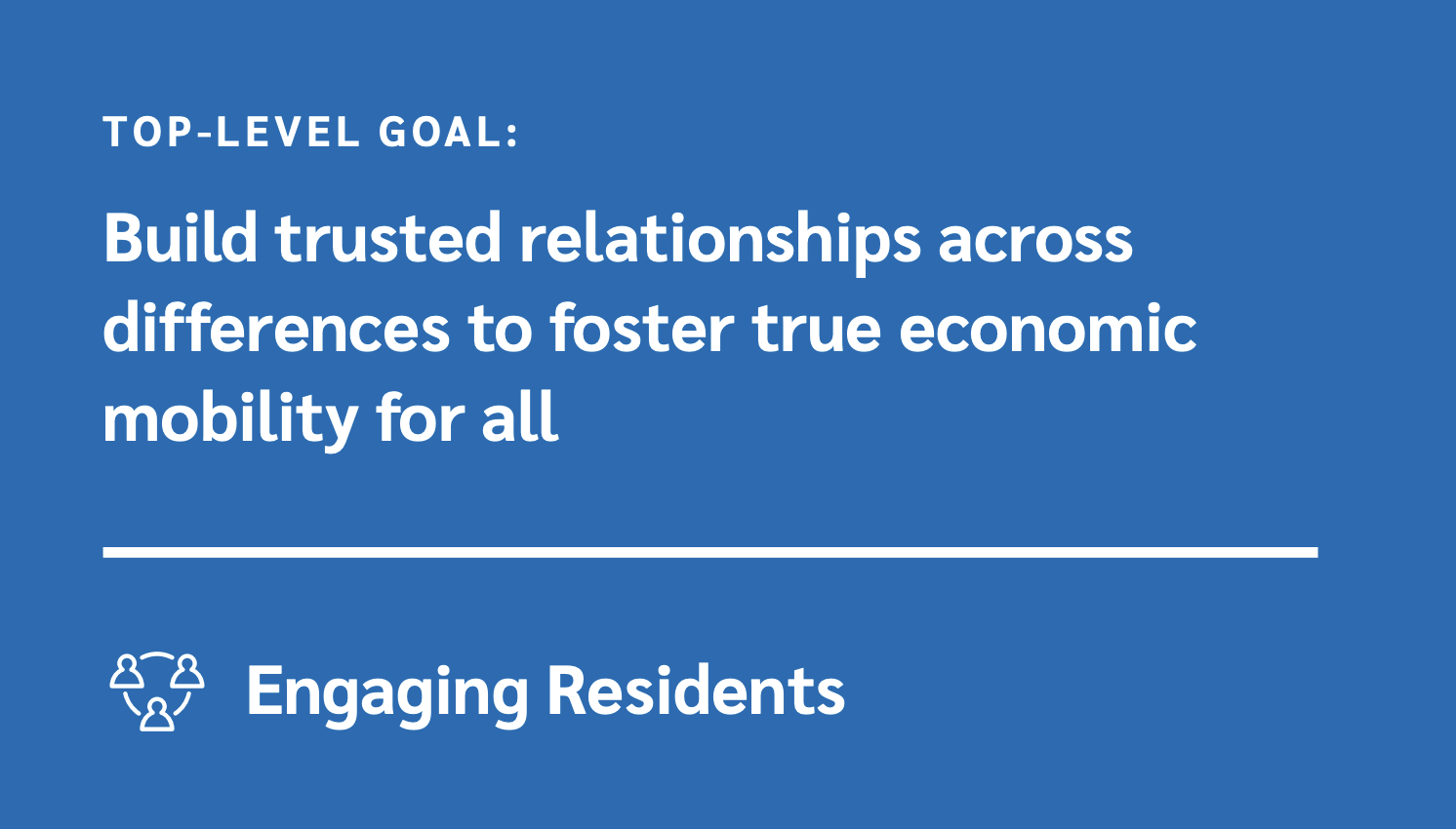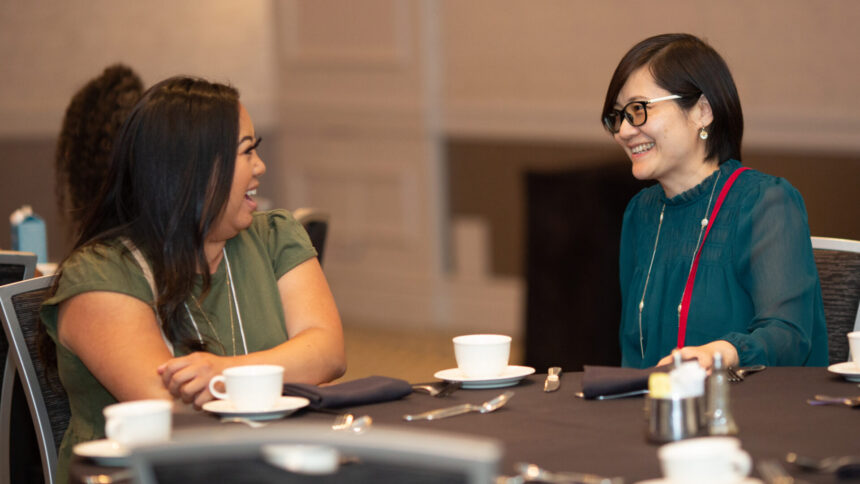We’re sharing community foundation stories from our recently published report, Advancing Economic Mobility in our Communities, which documents the outcomes of these community foundations that came together to develop economic mobility agendas for their communities.
Southwest Initiative Foundation

Blending stories and data to advance equity
The violence and unrest that followed the 2020 police killing of George Floyd in Minneapolis exposed deep divisions within Southwest Initiative Foundation’s Minnesota region, with many community members of color self isolating out of fear.
The foundation joined the Network with the clear goal of listening, supporting, and deepening its relationships with Black, Indigenous, and other communities of color — and of using data-driven strategies and humanizing narratives to advance equity and undercut racism across local systems.
The foundation adapted strategies from the US Partnership on Mobility from Poverty to create the conditions for true economic mobility: change the narrative, generate access to good jobs, ensure that zip code is not destiny, provide support that empowers, and transform its use of data.
Through the Network, the foundation created a plan with actionable efforts as a nimble roadmap. One of its major ongoing efforts has been a commitment to building relationships with the Cansa’yapi Oyate (Lower Sioux Indian Community) and Pezihutazizi Oyate (Upper Sioux Community) communities. A task force of foundation board members and staff has begun a “Land Acknowledgement” process.
An Indigenous land acknowledgment is “an effort to recognize the Indigenous past, present, and future of a particular location and to understand our own place within that relationship. Usually, land acknowledgments take the form of written and/or verbal statements,” said a definition shared by the Native Governance Center. For its project, the Southwest Initiative Foundation partnered with representatives of the Native Ways Federation and engaged historic preservation officers from the two Native nations.
“What feels different about this process is the deep level of humility that accompanied the learning and community engagement,” the foundation reported.
The six-month effort led to the late 2022 adoption of a Land Acknowledgment statement. A series of planned follow-up actions aim to further develop relationships with tribal communities, continue the foundation’s learning, help to educate the broader community, and explore foundation assets and other investments that can benefit tribal communities.
Conversations that can open new understanding
The foundation partnered with the Harvard Negotiation and Mediation Clinical Program in an 18-month project to understand how staff could effectively engage residents in conversations about race and racism. Project teams engaged with community members across age, gender, race and ethnicity, socio economic status, regional geography, occupation, and sector to map the political and social landscape of the region and assess people’s readiness to engage in hard conversations about race and racism.
The foundation also created the Regional Coalition of Equity Advocates in southwest Minnesota, which includes 18 leaders from higher education, arts organizations, social services, philanthropy, and public agencies in community, economic, and workforce development. Coalition members meet regularly to listen, learn, brainstorm and co-create powerful messages, effective tools and resources, and an intentional plan for sharing them collectively. The Coalition has helped spark a regional movement where organizations and leaders are encouraged to have courageous conversations that address hatred, racism and discrimination and build a sense of belonging.
Contact
If you have any questions about CFLeads’ future economic mobility work, please contact Leonard Brock at lbrock@cfleads.org or 617-854-3549.




